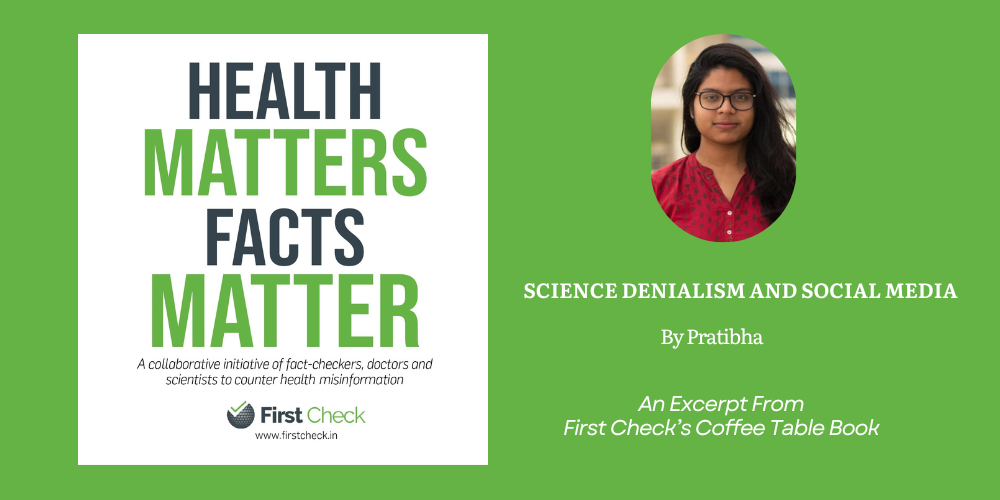This World Mental Health Day, let’s aim for balance and the acceptance of all emotions, rather than black-and-white thinking. Research shows that emotional invalidation and psychological inflexibility are linked to anxiety, depression, sleep disturbances and other mental disorders.
By Dr. Debanjan Banerjee
One of the common fallacies of conversation is when you are told to ‘be positive’, but you are never told ‘how’ to really do that. As the World Mental Health Day approaches, it is nearly impossible to go on social media without coming across motivational comments, such as ‘Look at the brighter side’, ‘It’s all going to be okay’, ‘Just focus on the better things’, etc.
Thanks to the last two years of COVID-19, such quotes have a better market now for everyone.
However, the question remains: How do I be ‘positive’ when things around me are indeed gloomy, dark and not supportive to my mental state? Try using any of these quotes with someone who has recently lost their loved one or their job or has barely enough to feed his/her family for a day, you will know that your attempt at ‘positivity’ (no matter how well-intentioned) is doing more harm than good!
Understanding toxic positivity
Toxic positivity is based on the principle that one should continue being positive, no matter what the circumstances. Simply speaking, it is the excessive and harmful over-generalisation of a ‘happy and optimistic’ state across all situations. This can lead to denial, minimisation of distress, and invalidation of genuine emotions. The other catastrophic consequence of toxic positivity is dismissal of mental health concerns, which perpetuates stigma and reduces professional help-seeking.
Anything is harmful in excess, so is positivity! An important component of resilience is navigating through distress with the required help and learning from the experience, rather than suppressing it under the façade of ‘false positivity’. Hurtful experience, if covered up, can be more damaging.
Emotions are meant to fluctuate and none of us are exceptions. Hence, it’s just okay to feel resentful, sad, jealous, greedy, and angry as much as feeling happy, joyous and content. The pretense of having ‘positive vibes all day long’ denies the validity of our genuine emotions and experiences.
We all have unique life stories, abilities, talents, limitations and hardships. Sufferings are part of life. In today’s world of rapid urbanisation, social buzz and superficial propaganda around mental health, the things we actually lack are empathy, compassion and a non-judgmental audience. Everyone is quick to advice: “Don’t worry be happy”, “Failure is not an option, go for it”, “Everything will work out”, “I can do it, and so can you” (the list is never-ending).
When a person talks about what they are feeling, their main goal is usually to validate their emotions, to understand and accept the emotional experience. In contrast, emotional invalidation involves ignoring, denying, criticising or rejecting another person’s feelings. The ability to go through both good and bad emotions and yet balance one’s mental wellbeing is termed as psychological flexibility and is directly linked to resilience and coping at times of distress.
Research shows that emotional invalidation and psychological inflexibility are linked to anxiety, depression, sleep disturbances and other mental disorders. It also reduces help-seeking when necessary. Let’s take an example. After a breakup, an individual may feel anger, sadness and confusion. His friend listens to him and validates him. The man then normalises his conflicting feelings and understands that the feelings will not last forever. On the other hand, suppressing his anxiety and struggling to stay positive will only cause more distress and may lead to clinical depression.
Need to change
Being a healthy human being involves being conscious of ourselves and how we show up in the world. If you recognise yourself as a transmitter of toxic positivity, it’s time to cut it out. You’re hurting yourself and the people you care about most by insisting on this monochromatic mindset.
Instead of practising toxic positivity, aim for balance and the acceptance of both good and bad emotions rather than black-and-white thinking. On the other hand, if you’re being influenced by toxic positivity, I encourage you to set healthy boundaries with anyone who passes judgment on your speaking your truth. We get one chance at this beautiful, painful, imperfect life…embrace it as it is and develop a balanced rather than unidirectional outlook.
Finally, if you feel that you need help for your mental health concerns, please visit a qualified mental health professional. We all need help at times and there’s absolutely no shame in it!
This World Mental Health Day, let’s pledge to change our message from “Always look for the silver lining” to “I see you. I’m here for you through thick and thin. You speak your heart and I will listen, no matter what…” That’s what matters!
(The author is a Kolkata-based consultant geriatric psychiatrist and member of First Check.)
















